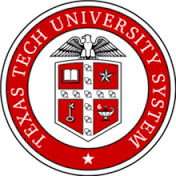 The new technology provides tremendous benefits for area farmers and ranchers.
The new technology provides tremendous benefits for area farmers and ranchers.
Researchers in Texas Tech University’s Department of Agricultural and Applied Economics are using a relatively new technology called the Fieldprint Calculator to help determine sustainability for farmers and ranchers on the Texas High Plains.
“When we think of sustainability, we think of physical sustainability, but there also is an economic portion to that as well,” said Donna Mitchell McCallister, a research assistant professor in the College of Agricultural Sciences & Natural Resources’ Department of Agricultural and Applied Economics.
“In order for a producer to be sustainable, they have to be profitable in the long run,” McCallister said. “So we work with producers to make sure they are using their water resources efficiently, but in a way they can still maintain profitability over time.”
McCallister said Texas Tech researchers are using a web-based program called the Fieldprint Calculator to define sustainability for the South Plains. They are collecting data from producers, determining the sustainability of those operations and defining the best management practices.
McCallister said the Fieldprint Calculator was created by Field to Market, a nonprofit agricultural organization. Fieldprint Calculator is a free, online, producer-oriented program available to anyone.
“A producer can log on to the Field to Market website, create an account and put their own specific data into the Fieldprint Calculator to determine what their specific sustainability metrics look like,” McCallister said. “Then they can change those metrics to see how different management practices affect the sustainability metrics for their own particular operation.”
Eight sustainability indicators are used to determine the performance of an agricultural operation: biodiversity, energy use, greenhouse gas emissions, irrigated water use, land use, soil carbon, soil conservation and water quality. The data is analyzed and a Fieldprint Analysis in the form of a spidergram is created to show the sustainability performance of the operation.
Field to Market began in November 2006 and is composed of member companies and agriculturalists committed to sustainably producing crops and uniting the supply chain. McCallister said some of the member companies represented by Field to Market include agribusiness firms, commodity organizations and brands and retailers, including Wrangler, Kellogg’s and Walmart.
Field to Market works with member companies to promote their commitment to sustainability. McCallister said this is especially important to Wrangler, because most of the cotton used to make its jeans is produced in the Texas High Plains region.
“We’re helping Wrangler advise their U.S. cotton sustainability program,” McCallister said. “They are helping to promote our best management practices that our producers use, so part of that is connecting producers with the brands themselves.”
McCallister said this connection is beneficial for the producers because producing crops more sustainably could prove to be more economically valuable in the long run. It is also beneficial for the brands and retailers from a marketing aspect because consumers have increased their demand for products developed in a more sustainable manner.
Find Texas Tech news, experts and story ideas at Texas Tech Today Media Resources or follow us on Twitter.

